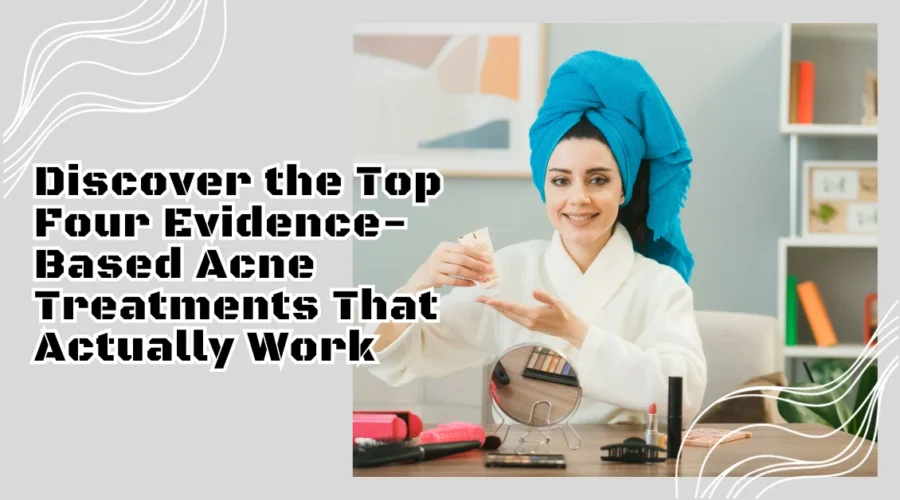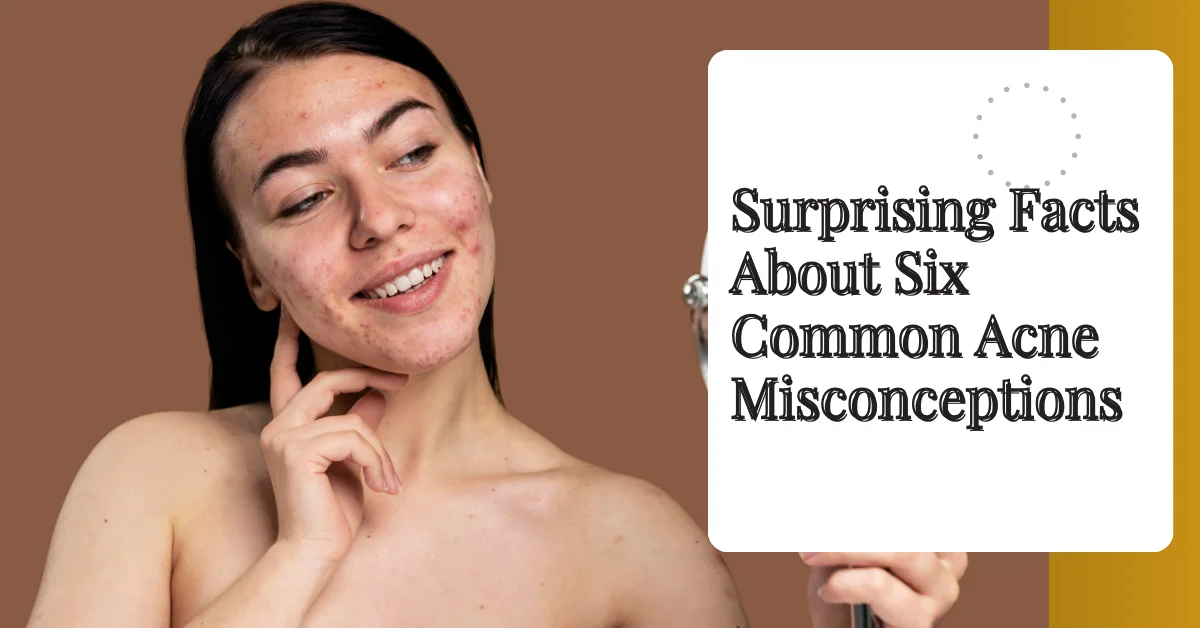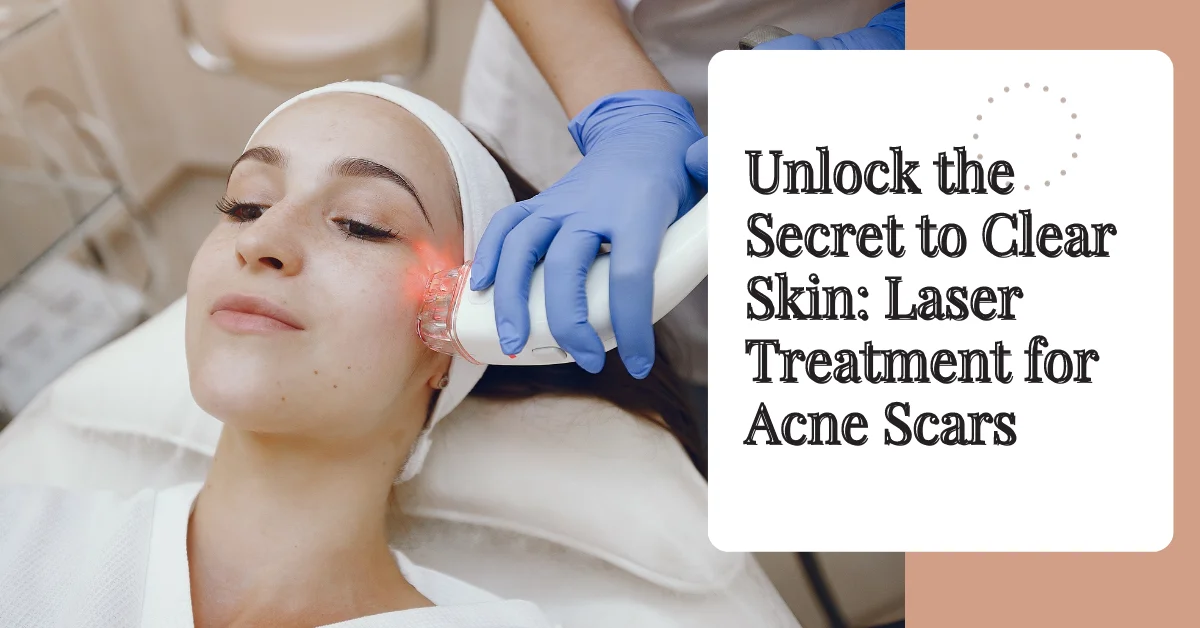Discover the Top Four Evidence-Based Acne Treatments That Actually Work
One day, you wake up in the morning and find a pimple on your face. What will you do? Your urge to pop the acne will bring more harm than you can ever think. We all know the frustration and self-consciousness acne brings and the battle we fight to get rid of it. For some people, it is a lifelong journey.
Luckily, modern medicine has made significant advancements in acne treatment. So, you no longer have to rely on old-fashioned remedies or suffer in silence. Those effective acne treatments can banish those pesky pimples for good. In this article, we will talk about the top four evidence-based acne treatment technologies that can help you to say goodbye to frustrating breakouts.
Prevalence and Impact of Acne
Acne impacts our physical appearance and significantly affects individuals psychologically and emotionally. The prevalence of acne is staggering. Many people believe that acne only affects teenagers. But studies show that it affects up to 50% of teenagers and around 25% of adults. So the truth is that it can occur at any age.
One interesting perspective is how acne can vary in severity from person to person. Some may only experience occasional breakouts or mild acne. Others may suffer from severe cystic acne that can leave long-lasting scars. This discrepancy highlights the importance of approaching acne treatment individually.
Furthermore, the impact of acne goes beyond physical appearance. Research has revealed links between acne and psychological distress, including anxiety and depression. Acne sufferers often experience low self-esteem and social withdrawal due to the visible nature of their condition. These emotional consequences emphasize the importance of supporting and addressing the mental health aspects associated with acne.
Limitations of Traditional Acne Treatments
Traditional acne treatments have long been a go-to for those seeking relief from stubborn breakouts. However, it’s essential to be aware of the limitations that come with these conventional methods.
Antibiotic Resistance
Topical creams and antibiotics can develop resistance over time. Bacteria can become resistant to them when antibiotics are used repeatedly. As a result, those medications will be less effective in acne treatment.
Skin Irritation and Dryness
Potential for skin irritation and dryness associated with traditional acne treatments. Many topical creams contain ingredients such as benzoyl peroxide or salicylic acid. Those can cause redness, peeling, and flaking of the skin. This can be particularly problematic for individuals with sensitive skin or those prone to dryness.
Do Not Target the Root Cause
Traditional acne treatments often only target one aspect of acne. It is either reducing excessive oil production or killing bacteria. They fail to address other factors contributing to acne formation, such as inflammation and hormonal imbalances.
Time-Consuming and Expensive
Traditional treatments are time-consuming and expensive. From daily application routines to regular doctor visits or prescription refills, it become quite a commitment. Moreover, many insurance plans may not cover certain prescription medications or procedures. That can leave individuals responsible for shouldering hefty financial burdens.
Top Four Evidence-Based Acne Treatments
Modern medicine has come up with some revolutionary treatments to combat acne. There are multiple options available that people can choose from. Each one has its own potential to overcome acne struggles. A few of them are:
- Chemical Peeling: Chemical peeling involves applying a strong acid to the skin to remove the outer layer. This process helps to unclog pores and stimulate new cell growth. As a result, it can reduce the appearance of acne and improve overall skin texture.
Commonly used chemicals in peels are trichloroacetic acid (TCA) and glycolic acid. TCA effectively targets acne scars and hyperpigmentation. It can penetrate into deeper layers of the skin to target stubborn acne lesions. Glycolic acid is recommended for those with mild to moderate acne. It can promote collagen production.
- Botox Injections: Botox is commonly associated with reducing wrinkles and fine lines. But it can also be used to improve the appearance of acne. Botox works by temporarily paralyzing the muscles in the affected area. That reduces oil production and minimizes breakouts. Botox can effectively treat acne by targeting specific areas like the forehead or chin. Botox injections can help smoothen puckered skin caused by stubborn acne scars. It works by relaxing the muscles around the scarred area, which helps to reduce their visibility.
- Microneedling: Microneedling focuses on mark removal by stimulating collagen production in the skin. This procedure involves creating small and controlled skin punctures using tiny needles. By inducing these micro-injuries, microneedling triggers the body’s natural healing process. As a result, acne scars, hyperpigmentation, and uneven skin tone improve significantly.
- Laser Resurfacing: Laser resurfacing has emerged as one of the top modern acne treatments. This technology uses targeted laser beams to remove damaged skin. That leaves behind a smoother and healthier surface. Unlike traditional methods that focus on treating acne at the surface level, laser resurfacing goes deeper into the skin without causing any harm.
Laser resurfacing can stimulate collagen production, which helps reduce acne scars and promote healing. This treatment also targets oil glands, minimizing their size and reducing sebum production. Furthermore, laser resurfacing can address other skin concerns, such as hyperpigmentation and uneven texture.
Wrap Up
Modern acne treatments have come a long way in effectively targeting and treating stubborn acne. These treatments include chemical peeling, Botox injections, microneedling, and laser resurfacing. Along with them, other options like punch excision are available to help clear up your skin and boost your confidence. It is essential to consult with a dermatologist to determine the best treatment plan for your specific needs. With consistent use and a proper skincare routine, these treatments can provide noticeable results for you.



